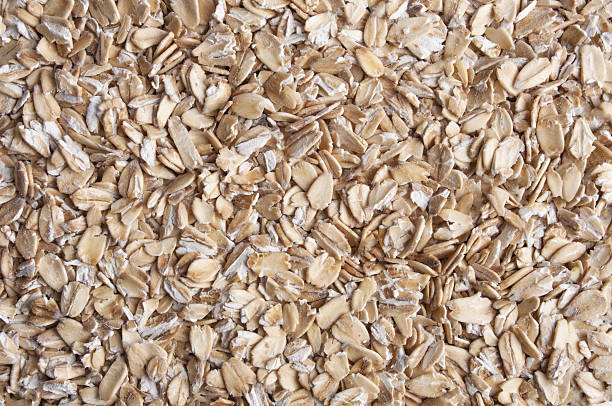Old-fashioned oats are a breakfast staple known for their hearty texture, nutritional value, and versatility in recipes ranging from oatmeal to smoothies and baked goods. But for individuals with gluten sensitivities or celiac disease, the question remains: Are old-fashioned oats truly gluten-free?
This ultimate overview dives into everything you need to know about old-fashioned oats and gluten — what they are, how they’re processed, and what to look for if you’re avoiding gluten in your diet.
What Are Old-Fashioned Oats?
Old-fashioned oats, commonly known as rolled oats, are produced by steaming whole oat groats and pressing them into broad, hearty flakes with a chewy texture.This process helps them cook faster while retaining their texture. They differ from instant oats (which are thinner and cook very quickly) and steel-cut oats (which are chopped and take longer to cook).
Are Oats Naturally Gluten-Free?
Yes — oats are naturally gluten-free. The oat grain itself does not contain gluten, which is a protein primarily found in wheat, barley, and rye.
Despite being naturally gluten-free, oats are often contaminated with gluten during growing, harvesting, or processing. This is due to:
-
Crop rotation with wheat or barley
-
Shared equipment used to process grains
-
Storage facilities that handle multiple types of grains
Because of this, oats sold in conventional grocery stores (even if labeled “100% oats”) may contain traces of gluten, making them risky for people with celiac disease or severe gluten intolerance.
Certified Gluten-Free Oats: The Safe Choice
To ensure oats are safe for gluten-sensitive individuals, look for packaging that clearly states “Certified Gluten-Free.” These oats are grown, harvested, and processed in a controlled environment that prevents cross-contamination with gluten-containing grains.
Popular brands like Bob’s Red Mill, Quaker (gluten-free line), and GF Harvest offer certified gluten-free old-fashioned oats.
Can Celiac Patients Eat Old-Fashioned Oats?
Yes — but only when they’re certified gluten-free and consumed in moderation. These oats still contain a protein known as avenin, which can trigger adverse reactions in a small number of individuals with celiac disease. It’s always best to:
-
Consult your doctor or dietitian
-
Start with small servings
-
Monitor how your body reacts
Benefits of Old-Fashioned Oats in a Gluten-Free Diet
Old-fashioned oats offer numerous health benefits, especially for those on a gluten-free diet:
-
High in fiber: Supports digestion and heart health
-
Rich in antioxidants: Especially avenanthramides, which are unique to oats
-
Great source of protein and iron
-
Versatile: Can be used in porridge, cookies, granola, energy bites, and more
Reading Labels Is Key
When shopping for oats, always:
-
Look for “Certified Gluten-Free” on the label
-
Avoid bulk bins if you’re highly sensitive (due to possible contamination)
-
Check ingredient lists of oat-based products like granola bars or cereals for hidden gluten sources
Final Thoughts
Old-fashioned oats are naturally gluten-free, but cross-contamination is a serious concern. If you’re following a strict gluten-free lifestyle due to medical needs, the safest route is to buy certified gluten-free oats from trusted brands.
With the right products and awareness, you can continue enjoying all the delicious, hearty, and health-boosting benefits of old-fashioned oats — without the gluten.







